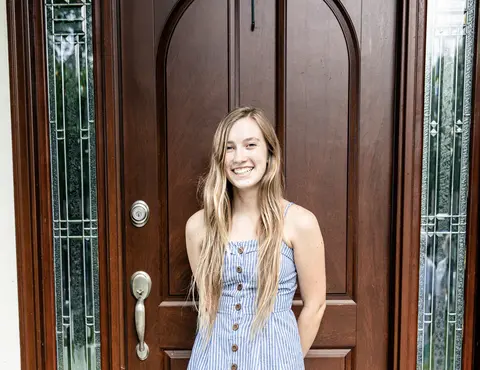This letter features reporting from “'A National Call for Food Production:’ Sustainable Farming Seeks Revolution in Puerto Rico” by Syra Ortiz-Blanes, a Pulitzer Center reporting project
Dear Council Member Paltin,
Hello! My name is Grace Wright and I am a junior at King Kekaulike High School. I recently read the article “‘A National Call for Food Production:’ Sustainable Farming Seeks Revolution in Puerto Rico” by Syra Ortiz-Blanes on the Pulitzer Center website. The article discussed the strain on food production the nation is facing and what some local community members are doing to address this issue.
Commercial farming is a practice that, while profitable, is not sustainable for the local community. Not only does it make consumer foods more expensive for locals, but it also puts the community in a vulnerable state when they are cut off and unable to import food. This was the situation in Puerto Rico when Hurricane Maria hit the island in 2017. In the mountain town of Orocovis, disaster struck as the town was cut off from the rest of the world. They had to survive on canned and donated food for months after the disaster. It was a different story in the neighboring town of Barrio Botijas. After the storm a group of students cleared the debris and got to work building a local farm. After two months the students were producing enough food for 200 people. This sparked a conversation about creating more farms like this in Puerto Rico so that the island could be more self-sufficient. The practice known as Agroecological farming gained traction. Agroecological farming is the practice of farming multiple crops on one plot of land and working hand in hand with nature as a way to reduce dependence on external materials such as pesticides. Proponents of agroecological farming claim that “agroecological farms could produce as much as two-thirds of the food that Puerto Rico’s population of 3.2 million consumes” (Syra Ortiz-Blanes).
Maui is not all that different from Puerto Rico. Like Puerto Rico, Maui is a victim of colonialism and the agriculture that grew out of that—cash crops such as sugar cane—thrived. That history has affected our current agricultural practice greatly. According to hawaii.gov, Maui imports 85–90% of it’s food at a cost of roughly $6.8 billion a year. Similarly, Puerto Rico imports much of their food, which results in “grocery store items in the San Juan area [being] nearly 21% more expensive than the U.S. national average” (Syra Ortiz-Blanes ). Commercial farming practices not only hurt your wallet, but in the event of an emergency, Maui is threatened with being cut off from food imports just as Orocovis was after Hurricane Maria. We all remember at the beginning of the lockdown when people rushed to stores and hoarded food because we were afraid that ships would no longer be coming in from the mainland. What if we had a reliable local supply of food and didn’t have to rely on imports? Agroecological farms could be our answer.
I have been researching some ways that Maui could adopt Agroecological farming and ask you to consider the following:
- Double Kula agricultural land. If the county were to buy more land and lease it out to farmers for a minimal price to allow them to develop it as they have with the current Kula agricultural land then that would eliminate the main barrier to more farms on Maui, the cost of land. The money it would cost for the county to do this would be reimbursed through local food security and hopefully less imported food overall.
- Encourage the diversification of crops on agricultural land. By supporting farms that have more diverse crops you are not only encouraging a greater diversification of consumer products but encouraging more plentiful land for the future as it has been shown that land that has more crops is more fertile and long lasting.
I challenge you to consider these two actions to help support Maui’s local economy and food security. Thank you so much for your time and consideration on this important issue.
Sincerely,
Grace Wright

Wright is a junior at King Kekaulike High School on the island of Maui, Hawaii. Grace feels passionate about the importance of food sustainability, particularly for her community, growing up in one of the most geographically isolated places on earth. She enjoys telling stories in both written and digital forms. She is a member of her school's journalism club, book club, and is enrolled in King Kekaulike’s digital media track. Outside of school Grace enjoys taking classes at her local dance studio, being a part of her school’s cross country and track teams, and is an avid football fan.
Read more winning entries from the 2021 Local Letters for Global Change contest!
